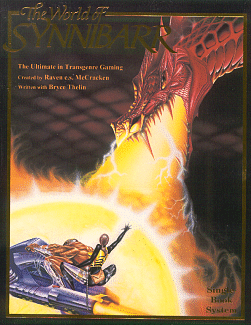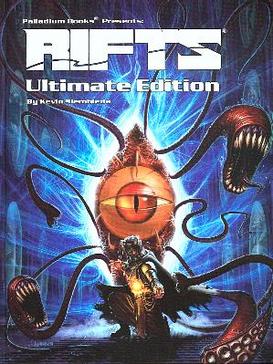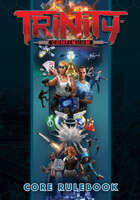(Following from yesterday's post.)
You're designing a tabletop game. That game is a machine. That machine has a user manual. What goes into it is the Writing issue.
What do you put into a user manual? An explanation of what the game is and how to use it.
When you put that manual together it is your job to decide what to include and what to exclude. You do not lack for guidance on this matter; you look at every other user manual worth a damn. You include the game's procedures for play. You explain what they are, how they work, and why it works that way (i.e. the core gameplay loop). You exclude everything else.
Lore? Irrelevant. Setting? Irrelevant. That's not what you put into the manual. All of that goes into a separate product, to be marketed and sold separately, and that assumes that you need to sell that not-gameplay stuff at all.
Ruger Doesn't Tell You A Story
The rules manual for a tabletop game is a technical manual. Technical manuals are a specific form of non-fiction writing product. They exist to instruct the reader on how to use a specific widget, how to operate as part of a crew (i.e. the Employee Handbook, the Series Bible for a TV show, the Federal Rules of Procedure for Federal courts, etc.). This is a medium of Dialectic, not Rhetoric.
This means that if you start insert needless artwork, story segments, or similar non-technical elements into the manual you fucked up. Again, White Wolf is notorious for this but they are by far not the only offenders. The U.S. State Department doesn't tell me a story when I read their manual on how to get a passport. You have no business deluging me about some story that I don't care about or shoving artwork I don't need and didn't ask for that just gets in the way of clear, concise communication.
Shut up and serve me that damned cheeseburger. I do not give a shit about your Original Setting Donut Steal.
Segregate Your Content
Speaking of Series Bibles, that's what all your setting and lore stuff is meant to be compiled into. That is not to be put together with the manual.
"But we've been-"
You've been doing it wrong for nearly 50 years. You got it in your heads some time in the 1980s that you had to put it into a single book. That necessity died in the 1990s when the Internet went public and websites became widely available. This is a business. Why are you imposing unnecessary costs on yourselves like that when you can put it all online in a publisher-controlled wiki at a fraction of the cost?
Ruger doesn't sell a company-controlled shooting league. Jeep doesn't bundle an endurance racing league with its cars. Boeing doesn't rope you into flying in their airline. Why in the hell are you, a widget maker, taking your widget and burying it under a mess of extraneous and unsolicited ancillary products or services that the user does not need and did not ask for?
"But Big Corp-"
The Big Player in this sad excuse for an industry wants to stop selling widgets. They would rather rope users into a recurring revenue service model of business, as that video by Pat that I posted the other day showed in no uncertain terms, because they know where the real money is: selling a means of networking users together to faciliate play. They want MMO/MOBA/Battle Royale/Extraction Shooter money, and they're going to get (something like) it.
"But the tie-in media-"
Separate product line, with a different target audience, requiring different skillsets to produce those products and to sell them. Are you a widget maker or not? You make RPGs, so you're a widget maker. Tie-ins are for people who like to read novels or comics, not for gamers. You make GAMES. You do not deal in publishing fiction.
"But-"
Do I need to send The Rock over there? No, I didn't think so.
You have no need to bundle your rules manual with your Setting Bible. Segregate that shit, and if you're doing a licensed game for the love of God make the licensor maintain a proper Setting Bible wiki for fans to access with all non-rules stuff put there. That way you can concentrate your work on making a game that delivers on the experience without worry about lore nerds wasting your time.
Death To Ludological Obesity
The end result of your work is that you produce a rules manual that is clear and concise. This means a product that is lean and mean.
In other words, this:

And not anything like this:




Your rules manual needs to be slim, clear, and concise because you need to focus upon the rules of the game and nothing else.
That is what your writing has to focus upon: competent technical documentation and communication. Not fiction. Not narrative. Pure Dialectic- No Rhetoric. The only feeling a reader had better get from reading this manual is "I had no problem comprehending what this game is, how it works, or why it works that way."
Which means that the writing alone is not enough. The presentation matters, and that is our post for tomorrow.
No comments:
Post a Comment
Anonymous comments are banned. Pick a name, and "Unknown" (et. al.) doesn't count.